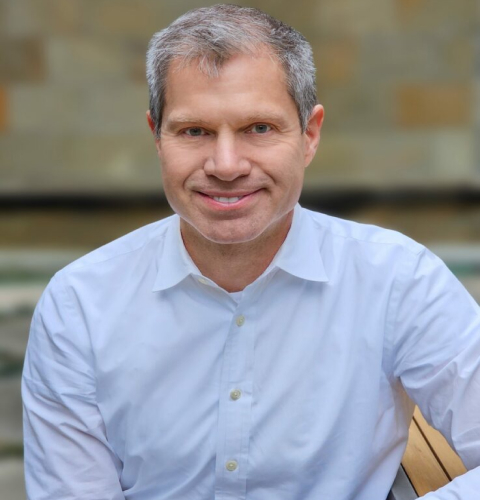The turn of the year is a natural moment to reflect on personal well-being and explore new ways to nurture both body and mind. But the journey toward balance doesn’t have to be tied to the calendar—it’s about finding sustainable habits that work for your unique lifestyle.
By integrating acupuncture into your self-care routine, you can create a foundation for improved physical health, mental clarity, and emotional resilience. This guide delves into practical strategies to set and achieve meaningful wellness goals while highlighting the holistic benefits of acupuncture.
The Power of Wellness Goals: Building a Framework for Balance
Wellness goals provide structure to your self-care practices, turning aspirations into actionable steps. These goals act as a compass, guiding your efforts toward a healthier, more balanced life.
Why Wellness Goals Matter
Clarity and Direction: Defining your goals helps identify the actions that lead to progress.
Motivation Boost: Achieving small milestones fosters a sense of accomplishment and encourages persistence.
Holistic Impact: Wellness goals address physical, mental, and emotional aspects, creating harmony in your life.
Start by envisioning what balance looks like for you. Is it less stress, better sleep, or improved physical energy? Use this vision to create achievable, incremental goals that are aligned with your priorities.
How Acupuncture Complements Your Wellness Journey
Acupuncture is more than a remedy for specific ailments—it’s a tool for holistic health that can amplify your wellness efforts. By working with your body’s natural energy systems, acupuncture promotes harmony and helps address underlying imbalances.
Benefits of Acupuncture
- Stress Reduction: Regular sessions help regulate cortisol levels, easing the toll of daily stressors.
- Pain Management: Acupuncture targets inflammation and muscle tension, supporting physical recovery and mobility.
- Energy Flow Restoration: By clearing blockages in energy pathways, acupuncture enhances vitality and focus.
- Immune Enhancement: Bolsters your body’s natural defenses, contributing to overall resilience.
Incorporating acupuncture into your self-care routine doesn’t have to be time-intensive. A session every few weeks can provide cumulative benefits that align with your wellness goals, enhancing your ability to stay balanced and energized.
Creating Small Habits for Lasting Change
The secret to achieving wellness goals lies in small, consistent actions. Instead of overhauling your lifestyle overnight, focus on integrating manageable habits that gradually lead to significant change.
Examples of Simple, Impactful Habits
- Daily Mindful Breathing: Dedicate five minutes each morning to slow, intentional breaths to center your mind.
- Regular Movement: Engage in light activities like yoga, stretching, or a brief walk to support mobility and mental clarity.
- Digital Detox: Limit screen time during specific parts of the day to reduce overstimulation and enhance focus.
- Weekly Self-Check-Ins: Reflect on your progress, noting what’s working and what adjustments may be needed.
By coupling these practices with acupuncture, you create a holistic system of self-care that addresses both external routines and internal balance, laying a solid foundation for long-term well-being.
Acupuncture’s Role in Building Resilience
Life’s challenges can take a toll on both mind and body. Acupuncture helps build resilience by strengthening your ability to adapt and recover. This makes it an ideal complement to your broader wellness practices.
Key Areas Where Acupuncture Builds Resilience
- Immune Support: Strengthens your body’s defenses, keeping you healthier and more energized.
- Emotional Regulation: Encourages balance in mood and reduces anxiety, helping you navigate stress with greater ease.
- Improved Sleep: Enhances sleep quality, ensuring better recovery and mental clarity.
- Enhanced Energy: Restores vitality by promoting balanced energy flow and addressing physical fatigue.
Think of acupuncture as a reset button that keeps you aligned, even when life feels overwhelming. With regular treatments, you’ll notice a stronger connection between your physical health and mental well-being, enabling you to face challenges with confidence.
Reflect, Adjust, and Thrive Your Path to Wellness Through Balance
As you progress in your wellness journey, taking time to reflect on your goals and habits is essential. This step allows you to celebrate progress, identify areas for improvement, and adjust your approach for continued growth. Acupuncture plays a unique role in this reflective process by offering not only physical relief but also mental clarity and emotional balance.
Key Benefits of Reflective Practices with Acupuncture
Enhanced Awareness: Acupuncture sessions often encourage mindfulness, helping you tune into your body’s needs.
Customizable Care: Regular treatments can be adapted to align with your evolving wellness goals, ensuring a personalized approach to health.
Sustained Balance: Acupuncture reinforces the stability and calm cultivated through your daily habits, making it easier to maintain momentum.
By combining mindful reflection with holistic practices like acupuncture, you create a system of care that evolves with you. This synergy ensures that your journey toward balance remains dynamic, adaptable, and deeply rewarding.
Your Path to Wellness Through Balance
Setting meaningful wellness goals is about creating sustainable habits that nurture your physical, mental, and emotional health. By integrating practices like acupuncture into your routine, you’ll find a powerful ally in achieving balance and resilience.
Metro Acupuncture is here to support your journey with personalized treatments tailored to your goals. Whether you’re looking to manage stress, improve energy, or enhance recovery, our holistic approach can help you thrive. Contact us today to begin your path to a healthier, more balanced you.
-
Mark A. Lewinter, DACM, L.Ac. has a Doctor of Acupuncture and Chinese Medicine degree from Pacific College of Health and Science and a Master of Science degree in Oriental Medicine from Southwest Acupuncture College. His interest in studying East Asian Medicine started at age thirteen when he was diagnosed with cancer. While undergoing chemotherapy, he also incorporated alternative medicine to facilitate his recovery.
View all posts
